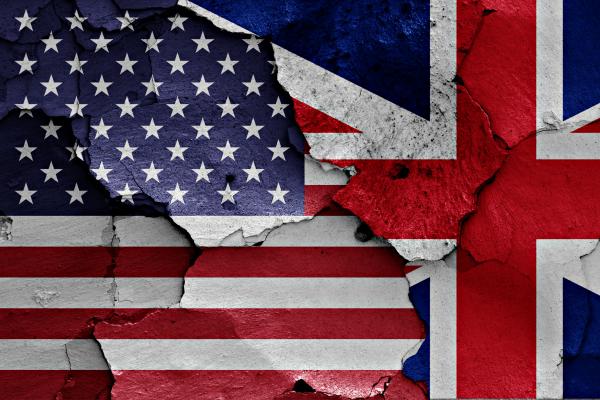I am a stranger in two strange lands. Born in the U.K. and an immigrant to the U.S., my understanding of self changed yesterday. As the U.K. voted to leave the EU and the U.S. Supreme Court’s tied decision left an appeals court block on President Obama’s executive order on immigration in place — my identity as an immigrant and a Briton changed.
The two events, linked by their connection to growing anti-immigrant sentiments, expose the fears that lie at the heart of some of the Brexit voters in the U.K. and the anti-immigration movement and Trump candidacy here in the U.S. — loss of country, culture, identity, security, and control.
Early this morning Nigel Farage, the head of U.K. Independence Party, who has made the U.K.’s withdrawal from the EU a life and career goal, declared the Brexit result as, “a victory for ordinary people, a victory for decent people.”
Nigel Farage, the same man who, earlier this month stood in front of a poster showing Syrian refugees at the Slovenia border said, “That is why you are seeing new parties emerging and new change happening. And I have to say something — every one of these can get to Calais.” "These." Not “these people” (which would have been bad enough). Not “them.” Just “these.”
When you put Mr. Farage’s two statements together, the narrative becomes clear. Mr. Farage dehumanized refugees, using their trauma and struggle for safety to stoke fear in the “ordinary” and “decent” British voters. And, while there were many people in the U.K. who voted to leave the EU for legitimate reasons, you cannot deny that those votes were bolstered by a wave of voters motivated by the rhetoric of Mr. Farage and the reasons listed above — loss of country, culture, identity, security, and control. It was made more apparent when Mr. Farage said, “The EU has failed us all. We must break free of the EU and take control of our borders.”
Enter Donald Trump — whose central issues and message is around controlling the border and building a wall. Mr. Trump — whose public foray into politics was with the birther movement questioning President Obama’s birth certificate — kicked off his presidential campaign by labeling immigrants as rapists and murders. Mr. Trump’s candidacy and rhetoric has, similarly to Mr. Farage’s Brexit message, been targeted at a group of Americans who believe that the U.S. is experiencing a loss of country, culture, identity, security, and control.
Mr. Trump uses language that was born from the anger of emancipation, bred in the oppression of the Jim Crow south, codified in the fight against civil rights, refined by the southern strategy, and amplified in the age of social media. It is the language that has informed and armed the millions of Americans who rejoiced at the Supreme Court decision yesterday.
I’m saddened by both the Brexit vote and the Supreme Court decision. They both represent a movement of people who see the “other” as the enemy and feel a loss of country, culture, identity, security, and control. I am a stranger in two strange lands.
Got something to say about what you're reading? We value your feedback!

